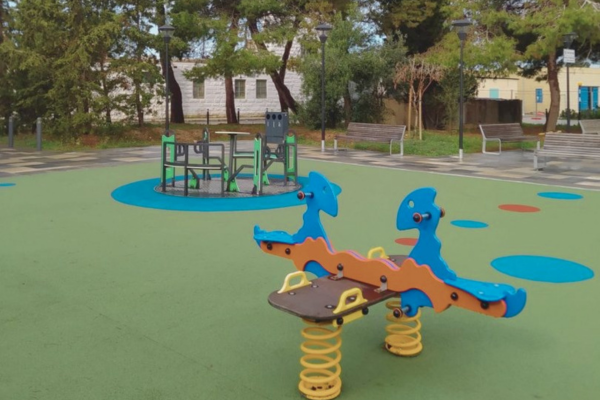Ever listen to a podcast episode and want to share it with everyone you know? That just happened to me. This was one of the first episodes I had ever listened to from Birthful – all about how to build a post-birth village.
Host Adriana Lozada is an advanced birth doula, a postpartum educator, and child sleep consultant. She speaks to doula & maternity advocate Kristy Zadrozny, and the tips they shared were sheer genius.
You know that the saying goes “it takes a village to raise a child” (or in our case, an island!). Well, that’s because life with a newborn is much harder than most new mums think it is.
I’m in that category right now, expecting reality to hit this summer. This episode really helped me understand how much support I’ll actually need, and how I can go about getting it.
Listen to the full episode here, or read on for a round-up of my favourite quotes and tips. The information shared is not all a direct quote from the podcast, but is all taken from their discussion.
 Do I really need a village?
Do I really need a village?
According to Adriana, Kristy and every expert and mother I have spoken to: yes. A resounding yes.
“Everyone tells you to sleep, acccept support, take care of yourself, be mindful, listen to your body. But when people actually do that, we see the difference.” explains Adriana.
“They might not notice it there and then. But looking back, they’ll always tell you that they wish they had extra support” continues Kristy.
Where do I begin?
“To build your village, start to identify what your needs might be during those first few weeks post-birth. Understand that you’re going to be feeding this baby regularly, every 2-3hrs. This means that there’s not much time left over during the day. So things like cooking, cleaning, childcare for older children – that stuff cannot be done by mum and dad during those first weeks.”
 If this is not your first child, start by setting up childcare for your toddler, whether it’s at a daycare or at home with a childminder or family member.
If this is not your first child, start by setting up childcare for your toddler, whether it’s at a daycare or at home with a childminder or family member.- If you’re planning to breastfeed, pick one lactation expert that you’re going to reach out to – whether that’s the person at the Breastfeeding Clinic that you connected with or a midwife you connected with during your stay at hospital. Figure out how you can reach them should you need to, and keep that number handy.
- Have food ready to go in the fridge and freezer. If you’re not much of a cook, that support can come from family or friends, or even from a food delivery service. Have your shopping cart ready to go on your favourite Wolt or Bolt store to have groceries delivered when you need it, or consider ready-made meals delivered to your door.
What about the house? It won’t clean itself…
One of the funniest quotes I’ve seen online is “Sleep when your baby sleeps, clean when your baby cleans”. Of course it’s unrealistic to only take care of the baby with no other help. That said, it’s important to remember what mum and dad’s roles are in this:
- Mum’s role is to take care of the baby.
- Dad’s role is to take care of Mum.
- Everybody else takes care of the other stuff.
If your parents or in-laws are coming over to help, they are the ones who need to be helping around the house, not vice versa. “If you find yourself scrubbing the toilet while the grandmother is holding the baby, that should not be happening.” says Kristy.
This is a situation that many mothers find themselves in, but the guests don’t do it to be mean. They just don’t think about it. So as parents, we have to think about it for them ahead of time.
How do I do that?
 “When you’re in the situation, you might find it awkward to ask your mother to do the laundry. But if you have a list written out, stuck to the fridge, that says “Here are tasks that need to be completed on a regular basis”, then when visitors ask “what can I do to help you” you can just let them know about the list.” suggests Kristy.
“When you’re in the situation, you might find it awkward to ask your mother to do the laundry. But if you have a list written out, stuck to the fridge, that says “Here are tasks that need to be completed on a regular basis”, then when visitors ask “what can I do to help you” you can just let them know about the list.” suggests Kristy.
Adriana agrees – “This is a great idea because not only does it take the pressure off you having to ask directly, but it also allows the person who wants to help to be directed, and to choose the job that they would enjoy doing the most.”
“Some people would be happy to empty the dishwasher whereas others would prefer to fold a basket of laundry. This adds a level of flexibility and ease to your village. It also allows them to take initiative – people feel cautious in some else’s home and wouldn’t want to step on your toes. Some people worry that cleaning a mum’s kitchen will make her feel like she’s messy, whereas if mum put that on the list, then there’s no awkwardness or concern.”
“Writing it out creates freedom and space for people to define their roles in the support system.”
I don’t want too many visitors!
As parents, you won’t want to turn people away when they show up, or worry that someone might drop in at all hours of the day. If you predefine a window in your day during which people can visit, it will put everyone’s mind at rest.
A simple Whatsapp reply to such questions could say “We’d love for you to meet the baby! Feel free to drop in any day between 3-5pm, but please let us know when you’re coming.” This also gives them a clear indication of how long they should stay – the last thing you need is people hanging around longer than they’re welcome.
Top tip: don’t accept any visits before 11am. Your mornings won’t be what they used to – allow yourself a mid-morning nap to catch up on the lack of sleep the night before.
 I don’t feel comfortable asking for help.
I don’t feel comfortable asking for help.
“If you’re a woman who is a caretaker, usually used to taking care of others, then that’s going to come up now.” explains Kristy.
You’ll want to make sure everyone is comfortable and happy, but your only job post-birth is to take care of the baby. Adding your family and friends to that list is going to overwhelm you, so preempting all of these things will allow you to keep everyone happy without doing any of the thinking.
Take a moment during your pregnancy to think about who in your life is “good help”, the kind of support you would actually want during this time. Write it down, think about it and then begin recruiting those different types of help: cooking, cleaning, shopping, childcare. So everything is off your plate. Also, lean on the help at the Breastfeeding Clinic and add that to your calendar. Visit them and allow yourself to ask for help.
How long is this going to last?
Remember that this doesn’t last forever. Baby’s stomach will grow steadily every week. That means that each meal will be more filling for them, and you will soon have more time between feeds to do other things in your day. But do give yourself the first 3-4 weeks to completely focus on your baby and nothing else.
If you have other mothers in your circle, reach out to them. Go for a walk with them, even if their child is older than yours. Peer support is a powerful resource for gaining perspective, feeling like you’re not alone and having your own experiences validated by someone who is actively living through it with you.
 What about my partner?
What about my partner?
Partners are going through their own process too, which is something both of you need to respect. They’re going through a lot emotionally. While they shouldn’t put all of that on the mother, they should definitely take some time and space to feel all their emotions as well.
“Meeting up with other dads or birth partners is a great way for them to do this. It’s really easy to start resenting the situation and wanting to get out of it. So it’s important to give ourselves the tools to cope healthily, allowing us to move forward as a team with the mum. There is research that shows that partners do also suffer from post-partum depression, particularly if the mother is also experiencing it.” they explain.
A few beautiful closing thoughts:
“When you allow yourself to ask for help, you are giving your own children a beautiful message. You’re showing your kids “Look, I was surrounded by love during your early days.” And they can grow up knowing that, and knowing that it is ok to ask for help. They don’t only have their mum, they have her friends and family and the team of specialists that she leaned on” says Kristy.
Keep in mind that during this period, you’re getting to know a new human being, but the baby is also getting to know themselves. “This baby doesn’t even know it’s an “I”. Doesn’t know that it’s arms are “arms” that belong to him or her as they hit his face” giggles Adriana.
“The only thing this baby does know is the sound of their parents’ voice. That is the only thing they can track and pay attention to. Other than that, it’s all new. Light is new. Sounds are new. Smells, temperatures, textures and feelings. This means that they can easily get overstimulated. That’s why it’s important to keep yourself and the situation calm when visitors come over. (And why it’s important for mum to stay with the baby post-birth while the others help, and not the other way around!)”



